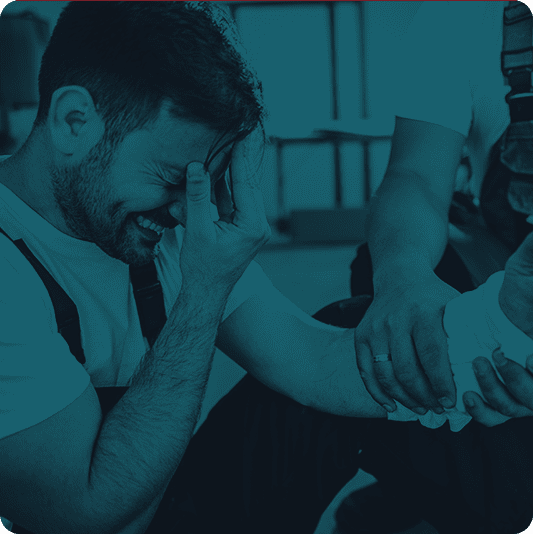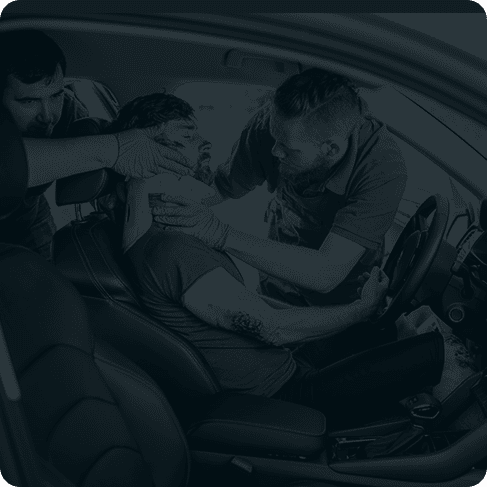Defective products are an unfortunate by-product in the era of mass production and a global economy. This is little more than an inconvenience for things like consumer products, but when it comes to medical devices, you have a right to safe products. A defective medical device attorney can help you with your personal injury claim from a faulty medical product.
What Is a Defective Medical Product?
There are a few different types of defective medical products. The obvious one is a product that had manufacturing errors causing it not to function properly. Another example is a device manufactured to spec, but the design itself was flawed.
In either case, a defective medical product can cause complications for users that can prolong or exacerbate health problems. The companies creating these products have an obligation to ensure they work as intended and do not cause harm to the subjects.
How to know if your device has been recalled for a defect?
The creators of medical products have an obligation to inform their customers of defects they become aware of. Notable recalls are posted on the FDA website. Companies also have an obligation to notify customers, much like car companies.
Medical product companies may be required to keep records of who purchases their products so that they can contact the purchaser in the event of a recall.
Types Of Defective Medical Devices
As with any type of product, defects happen. In some cases, this is noticeable, but in others, it may not be obvious to the end-user. Defective medical technology may be in use, and problems may not come to light until later. This can cause complications for the subject that may entitle them to compensation. Some examples include:
Hip Implants
There have been recalls for defective hip implants, particularly metal hip implant devices. The unfortunate part is that many patients had already received their hip replacements by the time the adverse effects of the design came to light. This left subjects with a difficult decision about risking further surgical complications to replace metal hip implant devices before they cause more problems.
IVC Filters
There were over 80,000 IVC filter recalls in the decade ranging from 2005 to 2015. Defects in these products were alleged to cause blood clots, injuries, and even death in some patients, though many recalls were due to package and label errors.
Philips CPAP
In more recent years, some CPAP (continuous assisted airway pressure) machines have been found defective. Also known as ventilators, some components of certain machines were found to break down and could be inhaled by users causing personal injury.
Other Devices and Medical Implants
Other common defective medical equipment includes:
- Anticoagulant medication
- Blood clot filters
- Breast implants
- Defective drugs
- Diet drugs
- Drug-coated stent
- Faulty diagnostic equipment
- Heart defibrillators
- Defibrillator wires
- Intrauterine birth control devices
- Knee replacements
- Defective knee replacement hardware
- Prosthetic devices
- Vaginal mesh implants (transvaginal mesh)f
All of these devices have been part of product liability lawsuits including serious cases involving organ damage and even wrongful death. If you have suffered adverse events from any of the above, contact our medical products lawyers about the device in question. They can help you determine if there was a safety alert or safety recall that could affect your claim for compensation
What should you do if you have a recalled device?
If you discover or suspect you have a medical product that has been recalled, you should find out what the problem is as soon as possible. You can look on the FDA website, the medical device manufacturer or distributor website, or contact your healthcare providers.
You may also receive a letter or other form of communication informing you of the recall. Read this notice and seek further clarification from the company or your medical provider if necessary.
You may need to stop using the product or device, though sometimes the notice can provide you with more information or corrections. In some cases, a repair or replacement is necessary, while other times, you may be able to continue use with certain precautions.
Filing a Defective Medical Product Claim
First, you need to be able to link an injury or other damages to a product defect. Next, you need to determine if this is a case of negligence, strict liability, or breach of warranty. Lastly, you need to identify the parties responsible: the designer, product manufacturer, or chain of distribution.
With all of that information, including any supporting evidence such as the product itself, medical bills from injuries, etc., you can look into filing your claim. You should check to see if there is a class-action lawsuit or recall for the defective product in question. This may give you more options.
If not, it is up to you what to do next. A defective medical device attorney can help you understand your likelihood of success in a case of a dangerous product, as well as help you file and pursue your medical device claim.
What is Medical Product Liability?
Medical product liability requires that a patient is informed about any potential side effects or defects that could harm them by using a product. Failure to do so could result in injury or death, and victims may be owed financial compensation.
Manufacturers of Dangerous Medical Devices Can Be Strictly Liable For Your Injuries
If you or someone you know has been harmed by a defective or dangerous medical product, the medical device manufacturer may be liable for compensation. A defective medical device lawyer can be a significant help in navigating the process and getting you fair compensation.
Some common cases include:
Design Defects
Design defects can cause medical devices not to function as intended or promised. These are not noticeable conditions like a physically broken device but flaws in the design process that can cause a device to malfunction.
You may not even notice the problem, or it could have an immediate effect. Either way, the medical device company that created the dangerous devices may be liable for any harm or damages caused by its faulty product.
Manufacturing Defects
Manufacturing defects may be more noticeable. These can include broken or missing parts or other flaws that could cause a medical device not to function correctly.
If these defects occurred during the manufacturing process, you might have a strong claim for receiving compensation.
Marketing Defects
There may be no defect with the medical device itself, but rather the documentation or marketing surrounding it. We gave an example above where the wrong packaging and labels gave incorrect information about a product. These types of mistakes can lead to improper use and complications.
Another example is false advertising, such as neglecting to mention the side effects of not giving sufficient warnings. Companies have an obligation to properly inform their customers about their products which could lead to harm or complications.
Statute of Limitations for Filing a Medical Device Liability Lawsuit in Florida
Generally, product liability lawuits fall under strict liability, which has a statute of limitations of four years. Negligence is also four years.
However, the statute of limitations is only two years for medical malpractice claims in Florida, so if there is any doubt of overlap, it is best to begin the process within two years of an incident involving a defective medical device.
How Our Experienced Defective Medical Device Attorneys Can Help You
Defective medical device claims can be more complicated than other legal actions for several reasons. The legal team at Denmon Pearlman can help you navigate your product liability claim and determine the best course of action.
For example, defective medical devices often end up as mass torts. Our personal injury lawyers know your rights and can help you receive compensation in the event of a class-action lawsuit.
Outside of these situations, defective medical equipment can settle for large sums of money, especially in the case of catastrophic injury or death. Having a trained defective medical device attorney on your side will help you understand the value of your case so you can receive maximum compensation.
FAQs
.
Our Expertise
We have your back. Whatever you might be suffering from, accidents, injuries or medical malpractice, we have you covered throughout Florida
Let’s get in touch!
The initial consultation is absolutely FREE
Denmon Pearlman
Law
Tampa Office
2504 W Crest Ave
Tampa, FL 33614
(813) 554-3232
Denmon Pearlman
Law
St. Petersburg Office
520 2nd Ave South
St. Petersburg, FL 33701
(727) 493-5610
Denmon Pearlman
Law
New Port Richey Office
5703 Main Street
New Port Richey, FL 34652
(727) 753-0049
Denmon Pearlman
Law
Brooksville Office
1790 E Jefferson St.
Brooksville, FL 34601
(352) 309-7354
Denmon Pearlman
Law
Seminole Office
5290 Seminole Blvd. Suite D
St. Petersburg, FL 33708




